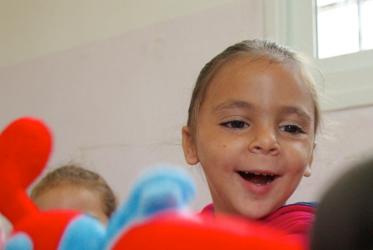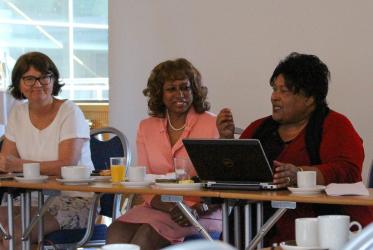Displaying 161 - 180 of 223
04 October 2016
New Executive Committee members elected in Trondheim
28 June 2016
Tveit in South Africa: “ We know. We dare. We can.”
12 June 2016
WCC conference explores ecological injustice in Uganda
21 April 2016
Land rights focus of panel discussion
17 November 2015
Common prayer in Geneva responds to acts of violence
16 November 2015
Beating the drum for peace
23 October 2015
Congolese church leader speaks on DRC electoral process at UN event
17 September 2015











